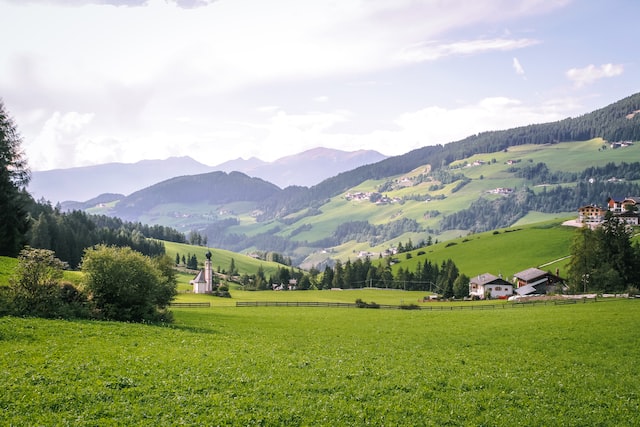Austria is a Central European country that speaks German. Austria takes pride in being one of the strongest and most stable European nations, affording its people high standards of living and thriving marketplaces for trade. Despite being a landlocked nation, it offers the ideal environment for investors because of its vibrant and diverse economy, which is defined by a free market economy. Construction and building, electronics and electrics, tourism, food and beverage, logistics and transportation, the automotive and chemical sectors, as well as steel and mechanical engineering, are among Austria’s most prominent businesses.

Austria offers favorable circumstances for investment as one of the most successful and secure EU members. With a strong social orientation that includes the weaker elements of society, the Austrian economic system can be described as a free market economy. Austria also has a tried-and-true economic and social partnership framework, which historically has had a significant and reconciling impact on wage and price policy.
Austria is quickly emerging as a hub for international dialogue in the world’s politics, as seen by the numerous summits and conferences that take place there. At the same time, the importance of the nation as a key transit nation between the various economic sectors of Europe is growing, particularly for the continent’s energy sources, which include gasoline, natural gas, and electricity.
Building and construction industries
Austria’s economy is heavily dependent on the construction and building sectors, and the country’s expanding infrastructure markets have given new projects a dynamic and diversified foundation. Over 6% of the nation’s gross domestic product comes from this industry. Due to the current population expansion, there is a significant demand for residential buildings, which is how the sector is developed through both private and public initiatives. The sector includes activities including planning projects, producing materials, tools, and machinery, providing services, and doing civil engineering.
Tourism industries
Since the 1950s, Austria’s tourism industry has contributed significantly to the country’s economic growth by embracing contemporary mass tourism. Additionally, the tourism industry is broad in scope, with strong employment and sales rates. Over 40,000 tourist-related businesses in the nation employ over 200,000 people.
Electronics
Austria’s electronics and electrics industry has produced an exceptional export ratio of more than 69.7%. Mechatronics, electrical engineering, automotive electronics, the electronic supply industry, automotive suppliers, diversified services, control engineering, electronics wholesale, and plant technicians are a few of the topics covered in this area. Every year, the local electronic sector employs thousands of people. Austria’s electronics industry is renowned for its creativity, variety of products, research, and expertise.
Food and drinks
The food economy contributes 12% of the country’s GDP, which is a significant and vital sector of the economy. Austrian food is well-liked throughout the world. The nation takes pride in having top-notch traditional and technological resources for managing food products. Additionally, a variety of foods and beverages are produced because of sophisticated production techniques and global agricultural trade. Agriculture, food trading, and food-processing industries including slaughterhouses and dairy farms are among the primary subsectors of the food and beverage sector. Brewing businesses, non-alcoholic beverage businesses, and culinary services are also available. Over 27,000 people are employed in the food industry.
Transport and logistics
Austria’s logistics, traffic, and transportation industries are flourishing, with increases in employment and productivity reporting. Overland transportation comprises commuter trains, auto buses, railroads, taxis, ships, and aircraft that transport people and cargo both domestically and beyond. Austria has a well-designed, globally integrated distribution network for the transportation of commodities via cross-border and global logistics networks. Austria holds a prominent position in the international transportation market because of a variety of transport and logistics technology standards, effective innovations, a strong customer focus, and high technical standards.







